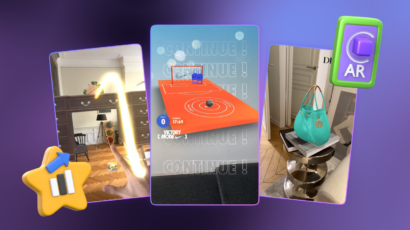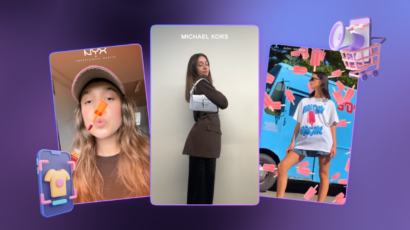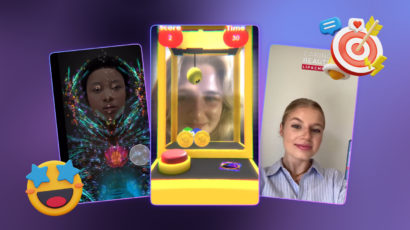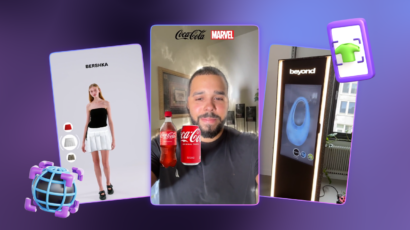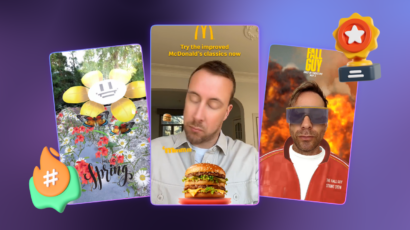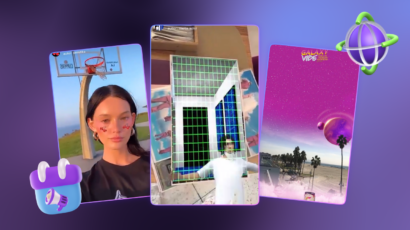To excel in your marketing strategies today, it’s crucial to speak the language of 2024. But what does that exactly mean?
As we fast forward into the digital age, the language of marketing is undergoing a rapid evolution. With immersive technologies like Virtual Reality (VR), Mixed Reality (MR), and Augmented Reality (AR) taking center stage.
These technologies are becoming more and more popular than they have ever been. Driven by the enthusiasm surrounding the Metaverse and the latest release of Apple’s Vision Pro headgear, these innovations have the potential to completely transform marketing, making traditional methods outdated.
So here’s another question that arises: Is your agency equipped to navigate this dynamic landscape? Let’s see for ourselves.
Why Immersive Technologies?
The Metaverse, a proposed network of interconnected 3D virtual worlds, promises to become the next frontier for social interaction, entertainment, and even commerce. Brands are already scrambling to establish a presence in this space, knowing that immersive experiences will be key to reaching future generations. Apple’s Vision Pro headset, with its advanced AR/VR capabilities, further validates the growing importance of immersive technology.
Now let’s talk numbers. Due to the wide range of applications that immersive technologies may be used in, research shows that the immersive technology market size was predicted to be worth USD 33.2 billion in 2023 and is projected to grow at a compound annual growth rate (CAGR) of around 24.5% between 2024 and 2032.
That’s indeed impressive.
Creating Unforgettable Brand Experiences
- Augmented Reality: Imagine trying on clothes virtually, visualizing furniture placement in your living room, or exploring virtual showrooms within a retail store. AR overlays digital elements onto the real world, creating interactive brand experiences that blur the lines between the physical and digital.
- Virtual Reality: Transport your audience to a product’s origin story, offer a behind-the-scenes look at a manufacturing process, or host exclusive virtual events. VR creates a fully immersive environment where users can experience your brand in a completely new way.
- Mixed Reality: Combining the best of AR and VR, MR integrates digital elements with the real world. Imagine showcasing customized features of a car within your actual field of view, or bringing historical figures to life through interactive projections within a museum exhibit.
Why Traditional Ads are a Thing of the Past: Benefits of Immersive Marketing
Immersive experiences offer a level of engagement and emotional connection that traditional ads simply cannot compete with. Consumers today demand authenticity and interactivity. They want to feel a part of the brand story, not be passively bombarded with commercials.
Here are More Benefits of Immersive Marketing:
- Increasing Brand Awareness: Immersive experiences are inherently shareable, generating buzz and driving organic reach, like social media posts of users trying on virtual clothes or attending VR concerts.
- Enhancing Engagement: Going beyond passive viewing. AR/VR/MR experiences actively involve users, fostering deeper brand interaction and creating lasting memories.
- Increasing Sales Conversions: Immersive experiences allow customers to “try before they buy,” building confidence in their purchase decisions. For example, visualizing furniture placement in a living room can significantly influence a purchase.
- Building Brand Loyalty: Immersive experiences create a more emotional connection with your brand, fostering trust and loyalty among customers.
Proven Success in Diverse Industries
Applications for immersive technologies can be found in a wide range of sectors, including gaming, entertainment, beauty, education, real estate, and many more. You can explore more insights in our blog section.
From fashion brands using AR try-on features to travel companies offering VR tours of destinations, immersive technologies have driven impressive results.
The report from Capgemini Research highlights how immersive technologies are reshaping the customer experience. Consumers are keen on immersive experiences across various platforms, including mobile, web, voice, sensors, and VR headsets. About 58% find them valuable during product selection and purchase. Moreover, 65% struggle with the limitations of traditional online shopping, but 69% believe immersive experiences could increase their online purchases. Additionally, 77% think interactive experiences can aid in better purchase decisions.
Your Immersive Marketing Partner
Our team of experts at Crosscreators holds the expertise and creativity to develop and implement a successful immersive marketing strategy tailored to your specific brand goals. We’ll guide you through the technology landscape, conceptualize engaging experiences, and help you measure the impact on your marketing objectives.
So, do not hesitate to schedule a consultation, and let’s advance your marketing agency’s speaking level to fluent in 2024.
